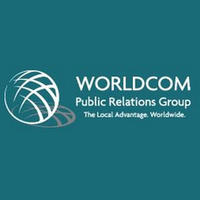New study: PR measurement playing increasingly important role
The measurement of public relations is increasingly gaining relevance. In particular, the importance of measuring quality and business aspects increases. Nevertheless, clients still ask for Advertising Value Equivalents (AVE).
This is the result of a recent survey on latest PR measurement trends of the Worldcom PR Group, which was conducted by partner agencies right across the regions of Europe, Middle East and Africa.
Qualitative methods dominate
According to the survey qualitative methods currently dominate in measuring success: Most of the respondents, namely 95%, assess their output qualitatively. Only 73% of respondents use quantitative techniques. While 95% of respondents, for example, evaluate the tone of coverage, more than two thirds (68%) also analyze how the performance of the PR activities and the business outcomes can be linked.
Remuneration depends on business success
The survey results also show that more than a quarter of Worldcom partners (27%) receive performance-related fees for larg reaches and high effects that are associated with specific campaigns in addition to their fixed rates.AVE: Valid metric for PR measurement?Although improved methods are increasingly used in measuring the success and the performance of PR activities is more and more linked with the business objectives of an organization, 61% of clients still ask for PR output to be assessed using Advertising Value Equivalents. Patrik Schober, chairman of Worldcom EMEA, said in this respect that it was time, "to move to more important outcomes such as products or information shared.“ He continued: "It`s vital that content and conversations are assessed qualitatively.“
The Commission on Public Relations Measurement and Evaluation of the Institute for Public Relations also rejects Advertising Value Equivalents as a measure of value in public relations. The Measurement Commission argues that advertising is purchased and provides the advertiser complete control over content, placement and frequency of his messages, and is nearly always positive. In contrast to advertising "earned media" is only semi-controllable, journalists decide for or against PR-induced messages, that may result in positive, neutral or negative messages. In addition, due to the AVE neither impacts nor effectiveness of PR activities can be determined.
About the Worldcom Public Relations Group Survey
Worldcom Partners completed the survey right across the EMEA region – from Europa, Middle East and Africa. Respondents represent over 500 clients from global giants to local start-ups across several industries, including IT, healthcare and tourism. Worldcom Public Relations Group itself is the world’s leading partnership of independently owned public relations firms, with 140 offices worldwide.
back to News


